Following World War I, Americans reached the conclusion that our country’s participation in that war had been a disastrous mistake, one which should never be repeated again. This resulted in a major segment of the population becoming “isolationist” hoping to avoid dragging the country into another disastrous foreign war.

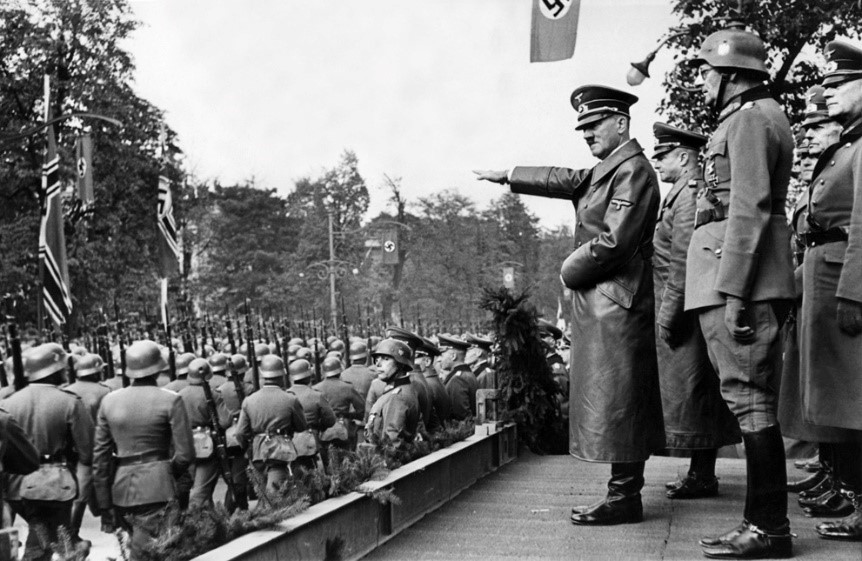
Lewis Lee Millett Enlisted Into the National Guard While Still in High School
Even when Nazi German invaded Poland in 1939 and began conquering and controlling much of continental Europe, most Americans were adamant we stay out of the war – even though the war in Europe posed a serious challenge to the U.S. neutrality. Americans eager to help fight fascism and Hitler grew frustrated. A large number of these were young American males. Romanticized by the idea of fighting in battle and not wanting to wait until the United States decided to enter the war, many crossed the border into Canada. Among them was a South Dartmouth, MA. teenager by the name of Lewis Lee Millett.
But before Millett made the actual decision to enter Canada, he enlisted into the National Guard while still in high school and in 1940 joined the United States Army Air Corps when he was 20-years-old. Watching the German’s make advances after advances in Europe, he deserted in mid-1940 and went to Canada with a friend where they joined the Royal Canadian Army. He was shipped to London where he manned an anti-aircraft gun during the eight months Nazi Germany bombed of the city during the “London Blitz.”
On December 11, 1941, four days after Japan bombed Pearl Harbor, Adolf Hitler declared war on the United States, dragging America into war in Europe they could no longer avoid. Millett quickly rejoined the U.S. Army, which apparently was not being overly meticulous in its background checks, missing completely his 1940 desertion.
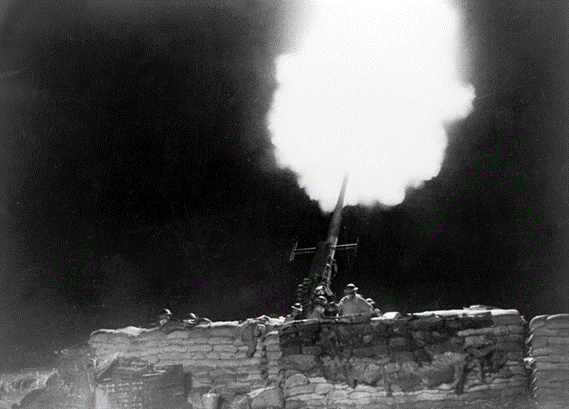
Lewis Lee Millet was awarded the Silver Star
Assigned to the 27th Armored Field Artillery Regiment, 1st Armored Division, Millett served in Tunisia as an anti-tank gunner. During his first battle, he drove a burning ammunition-filled half-track away from Allied soldiers, jumping to safety just before it exploded. For this action, he was awarded the Silver Star. He later shot down a Messerschmitt Me-109 fighter plane using half-track mounted machine guns.
Millett, by then a Sergeant, next took part in the Allied invasion of Italy at Salerno and the subsequent Battle of Anzio. It was at this time that the U.S. Army discovered Millet’s 1941 desertion; he was court-martialed, convicted and ordered to pay a $52 fine. Only weeks later he was given a battlefield commission to Second Lieutenant.
When World War II ended, Millett left active duty, only to rejoin the National Guard. He was in his third year at Bates College in Lewiston, Maine, when he was recalled to active duty to serve in the Korean War.
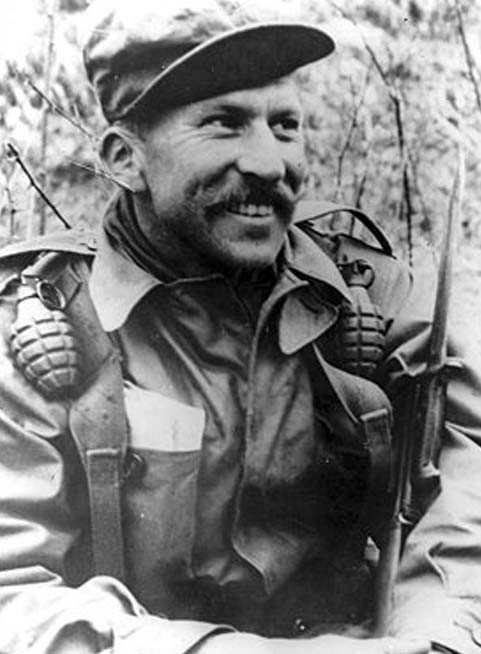
On February 7, 1951, while Millett was serving in Korea as a Captain and Commander of Company E of the 2nd Battalion, 27th Infantry Regiment. The company was on patrol near Soam-Ni, when he observed a heavily fortified enemy position atop Hill 180. Leading his company in an attack against the strongly held position, he noted his First Platoon was pinned down by small-arms, automatic, and anti-tank fire. He quickly ordered the Third Platoon forward, placed himself at the head of the Second Platoon and with fixed bayonets and hand grenades, led the assault up the fire-swept hill. In fierce hand-to-hand combat, he threw grenades, clubbing and bayoneting the enemy. So fierce and lethal was the assault, the surviving enemy fled in disbelief. Although wounded by grenade fragments, he refused to be evacuated until the position was firmly in the hands of his company. Out of about 50 enemy dead, roughly 20 were found to have been killed by bayonets, and the location subsequently became known as Bayonet Hill.
For his Courage During the Assault, Lewis Lee Millet was Awarded the Medal of Honor
Historian S.L.A. Marshall described the attack as “the most complete bayonet charge by American troops since Cold Harbor.”
For his leadership and courage during the assault, Millett was awarded the Medal of Honor. The medal was formally presented to him by President Harry S. Truman in July 1951. He was also awarded the Army’s second-highest decoration, the Distinguished Service Cross, for leading another bayonet charge in the same month.
After the Korean War, Millett attended Ranger School at Fort Benning, Georgia. He served in the 101st Airborne Division as an Intelligence Officer and later served in the Vietnam War as a military advisor to a controversial intelligence program called Phoenix. (The program killed thousands of suspected Viet Cong and their sympathizers in an effort to destroy the Viet Cong infrastructure in towns and villages). He also helped found a “Recondo” school which trained small units for deployment to Vietnam.
Millett retired from the military in 1973 at the rank of Colonel. He later stated that he retired because he felt the U.S. had “quit” in Vietnam. After his military career, Millett served as a Deputy Sheriff in Trenton, Tennessee.
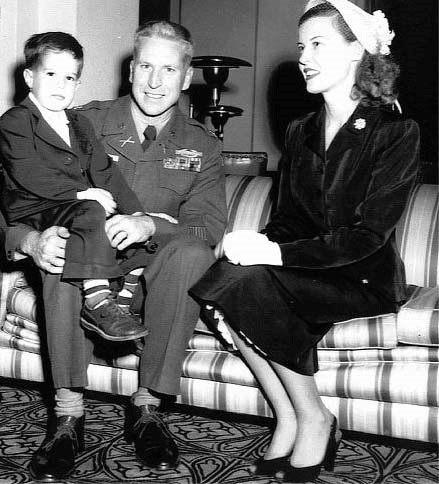
Lewis Lee Millet was a Member of the Congressional Medal of Honor Society
He eventually moved to Idyllwild, California, where he would remain for the rest of his life.
He regularly appeared at events celebrating veterans, both in the Riverside County area and elsewhere around the country. He was a member of the Congressional Medal of Honor Society and the California Commandery of the Military Order of Foreign Wars.
Millett’s first marriage, to Virginia Young, ended in divorce. During the festivities surrounding his Medal of Honor award in 1951, he met Winona Williams. The two were later married and had four children: Lewis Lee Jr., Timothy, John, and Elizabeth. By the time of Winona Millett’s death in 1993, the couple had been married over 40 years. Millett’s son John, an Army Staff Sergeant, was among more than 240 U.S. military members killed in 1985 when their airplane, Arrow Air Flight 1285, crashed in Gander, Newfoundland while carrying them home from peacekeeping duty in the Sinai Peninsula.
Lewis Millett wrote the following poem in memory of soldiers who have made the ultimate sacrifice, especially his youngest son, and the 347 people who were killed returning from a peacekeeping mission in the Sinai.
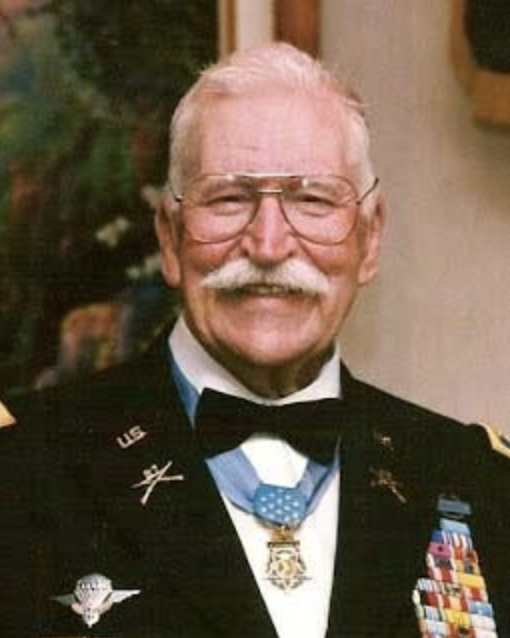
A SOLDIER’S PRAYER – by Col. Lewis L. Millett
I’ve fought when others feared to serve.
I’ve gone where many failed to go.
I’ve lost friends in war and strife, who valued duty over the love of life.
I’ve shared the comradeship of pain
I’ve searched these lands for men that we’ve lost.
I’ve sons who’ve served our land of liberty who’d fight to see that other lands are free.
I’ve seen the weak forsake humanity.
I’ve heard fakers praise our enemy.
I’ve seen challenged men stand ever bolder.
I’ve seen the duty, the honor, the sacrifice of the soldier.
Now, I understand the meaning of all lives,
The lives of comrades of not so long ago.
So to you who answered duties siren call, may
God bless you, my son, may God bless you all.
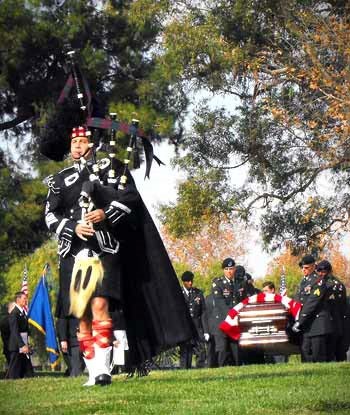
Millett died of congestive heart failure on November 14, 2009, one month short of his 89th birthday. He died at the Jerry L. Pettis Memorial VA Medical Center in Loma Linda, California, after being hospitalized four days earlier. He had experienced various health problems over the last few years of his life, including diabetes. His funeral was held on December 5, 2009, at Riverside National Cemetery in Riverside, California and his grave can be found in section 2, grave #1910.
Reflecting on his career, Col. Millett once told an interviewer: “I believe in freedom, I believe deeply in it. I’ve fought in three wars, and volunteered for all of them, because I believed as a free man, that it was my duty to help those under the attack of tyranny. Just as simple as that.”
A video interview of Col. Millett can be seen at:
https://www.youtube.com/watch?v=S9H7XplkI54
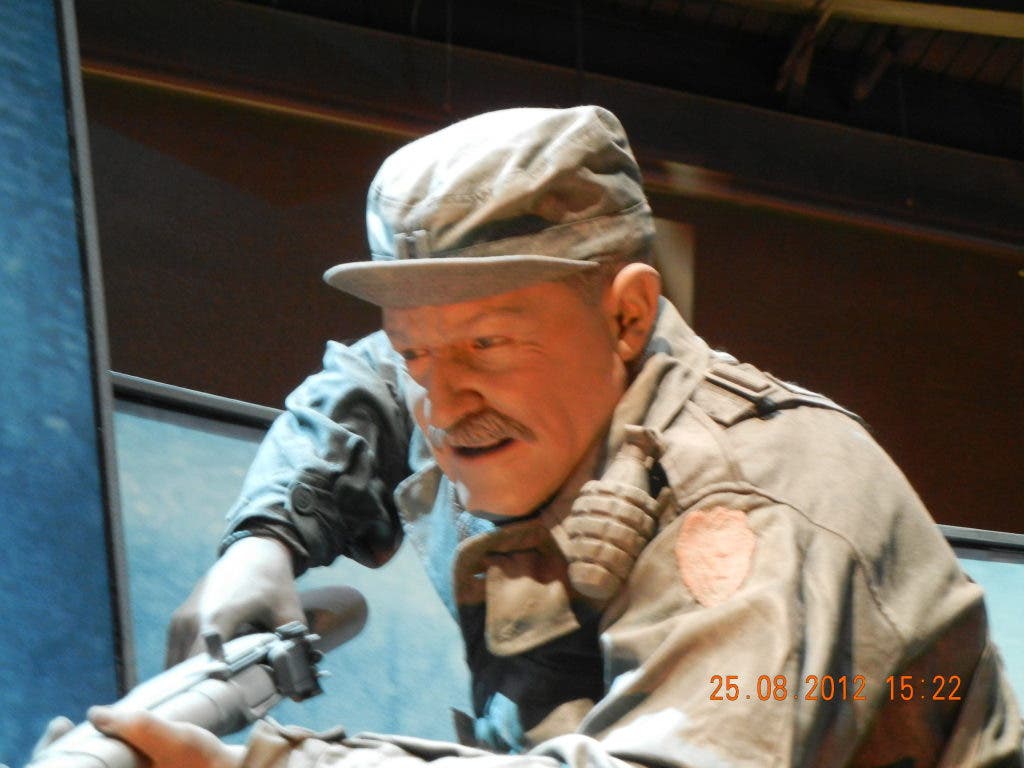
0 Comments